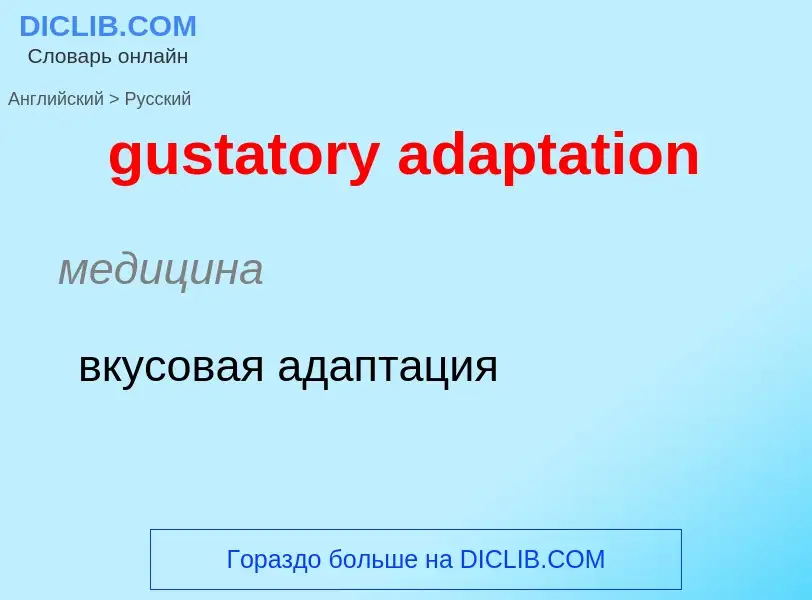Translation and analysis of words by ChatGPT artificial intelligence
On this page you can get a detailed analysis of a word or phrase, produced by the best artificial intelligence technology to date:
- how the word is used
- frequency of use
- it is used more often in oral or written speech
- word translation options
- usage examples (several phrases with translation)
- etymology
gustatory adaptation - translation to russian
медицина
вкусовая адаптация
общая лексика
сенсорная адаптация
медицина
чувствительная адаптация
Definition
Wikipedia
Neural adaptation or sensory adaptation is a gradual decrease over time in the responsiveness of the sensory system to a constant stimulus. It is usually experienced as a change in the stimulus. For example, if a hand is rested on a table, the table's surface is immediately felt against the skin. Subsequently, however, the sensation of the table surface against the skin gradually diminishes until it is virtually unnoticeable. The sensory neurons that initially respond are no longer stimulated to respond; this is an example of neural adaptation.
All sensory and neural systems have a form of adaptation to constantly detect changes in the environment. Neural receptor cells that process and receive stimulation go through constant changes for mammals and other living organisms to sense vital changes in their environment. Some key players in several neural systems include Ca2+ions (see Calcium in biology) that send negative feedback in second messenger pathways that allow the neural receptor cells to close or open channels in response to the changes of ion flow. There are also mechanoreception systems that use calcium inflow to physically affect certain proteins and move them to close or open channels.
Functionally, it is highly possible that adaptation may enhance the limited response range of neurons to encode sensory signals with much larger dynamic ranges by shifting the range of stimulus amplitudes. Also, in neural adaptation there is a sense of returning to baseline from a stimulated response. Recent work suggests that these baseline states are actually determined by long-term adaptation to the environment. Varying rates or speed of adaptation is an important indicator for tracking different rates of change in the environment or the organism itself.
Current research shows that although adaptation occurs at multiple stages of each sensory pathway, it is often stronger and more stimulus specific at "cortical" level rather than "subcortical stages". In short, neural adaptation is thought to happen at a more central level at the cortex.


.jpg?width=200)
